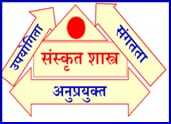Course Contents
Being a short duration orientation course, the course content, through its 6 units, encompasses principal aspects of the concept; historical, philosophical and social perspectives; the normative and institutional mechanisms of the UN and a focus on India and its human rights problems.
Finally it stresses the need for internalizing the human rights and duties culture.
Course Content
1. CONCEPT OF HUMAN RIGHTS AND DUTIES
(i) Values: Dignity, liberty, equality, justice, unity in diversity
(ii) Inherent, inalienable, Universal and indivisible
(iii) Classification of rights
(iv) Classification of duties
(v) Correlation of rights and duties
2. HISTORICAL, PHILOSOPHICAL AND SOCIAL PERSPECTIVES
(i) Changing dimensions of human rights and duties
(ii) Theories of human rights
(iii) Social movements
3. UNITED NATIONS AND HUMAN RIGHTS AND DUTIES
(i) UN system and human rights
(a) Universal Declaration of Human Rights 1948
(b) International Covenant on Civil and Political Rights 1966
(c) International Covenant on Economic, Social and Cultural Rights 1966
(d) Convention on Elimination of All Forms of Racial Discrimination 1965
(e) Convention on Elimination of All Forms of Discrimination against Women1979
(f) Convention on the Rights of the Child 1989
(g) UN Declaration and Duties and Responsibilities of Individuals 1997
(ii) UN agencies to monitory compliance such as UN High Commission for Human Rights
and the Committees under the various conventions
4. HUMAN RIGHTS AND DUTIES IN INDIA
(i) Evolution
(ii) Fundamental Rights (Part III)
(iii) Directive Principles of State Policy (Part IV)
(iv) Fundamental Duties (Part IV-A)
(v) Their inter-relationship
(vi) Protection and enforcement of human rights and duties
(a) Judiciary
(b) National and State Human Rights Commissions and other grievance
redressal mechanisms
(c) NGOs, social movements and pressure groups
(d) Information media
5. SOCIETAL PROBLEMS IN PRIVATE AND PUBLIC DOMAINS
(i) Core problems: Poverty, underdevelopment and illiteracy
(ii) Some Specific Problems:
(a) Communal and Caste conflicts and tensions
(b) Discrimination and violence against women and children, sexual violence,
trafficking, child labour, bonded labour and others
(c) Custodial violence
(d) Problems of health and environmental protection
6. IMPORTANCE OF INTERNALIZING OF HUMAN RIGHTS AND DUTIES
Urgent need for not only sensitizing others of human rights and duties, but of practicing oneself
those values: self-inculcation, endeavour to live up to those ideals – Duty to respect others’ rights,
respect each other’s human dignity

